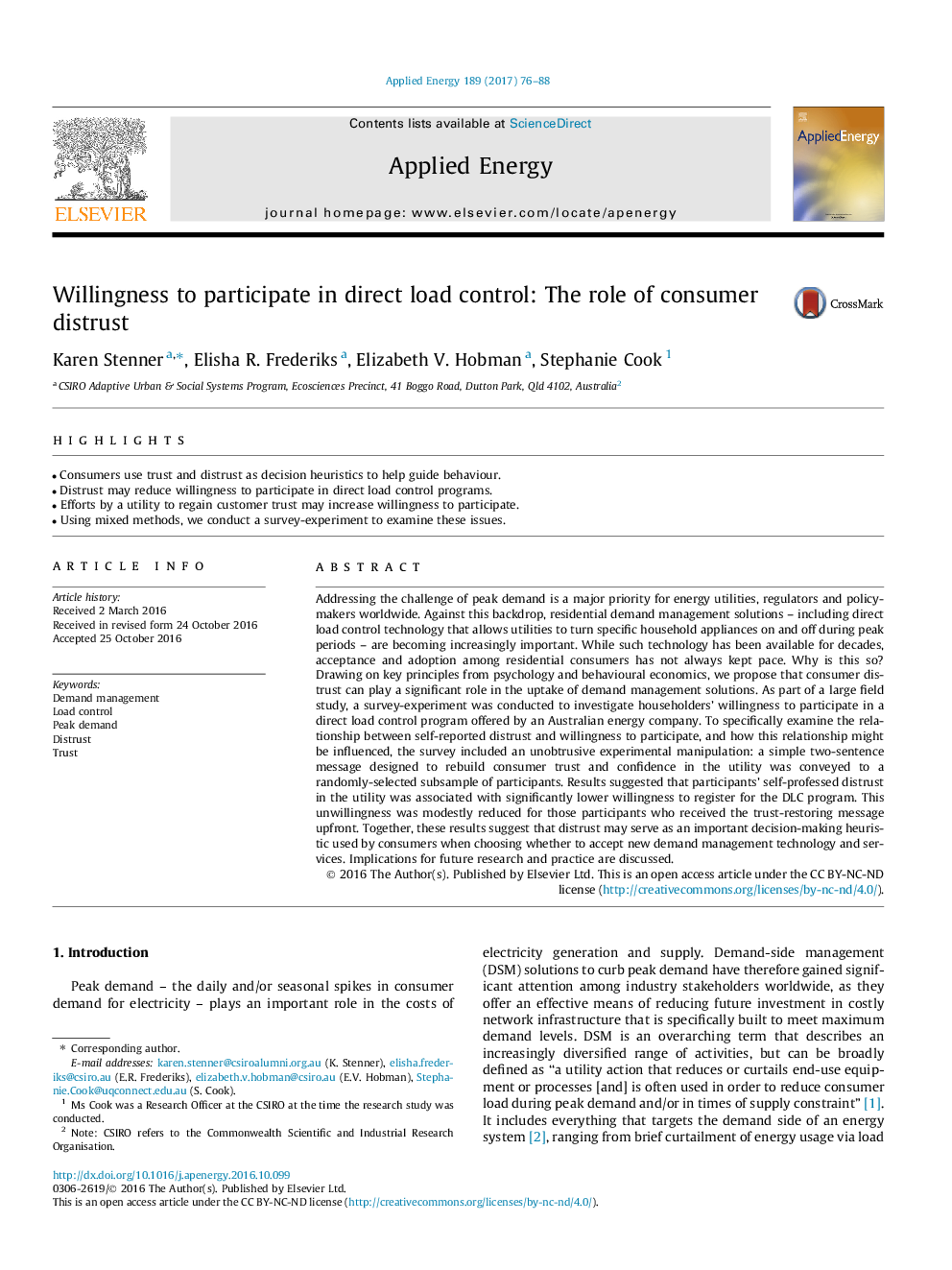ترجمه فارسی عنوان مقاله
تمایل به شرکت در کنترل مستقیم بار: نقش بی اعتمادی مصرف کنندگان
عنوان انگلیسی
Willingness to participate in direct load control: The role of consumer distrust
| کد مقاله | سال انتشار | تعداد صفحات مقاله انگلیسی |
|---|---|---|
| 88275 | 2017 | 13 صفحه PDF |
منبع

Publisher : Elsevier - Science Direct (الزویر - ساینس دایرکت)
Journal : Applied Energy, Volume 189, 1 March 2017, Pages 76-88
ترجمه کلمات کلیدی
مدیریت تقاضا، کنترل بار، اوج تقاضا، بی اعتمادی، اعتماد،
کلمات کلیدی انگلیسی
Demand management; Load control; Peak demand; Distrust; Trust;

